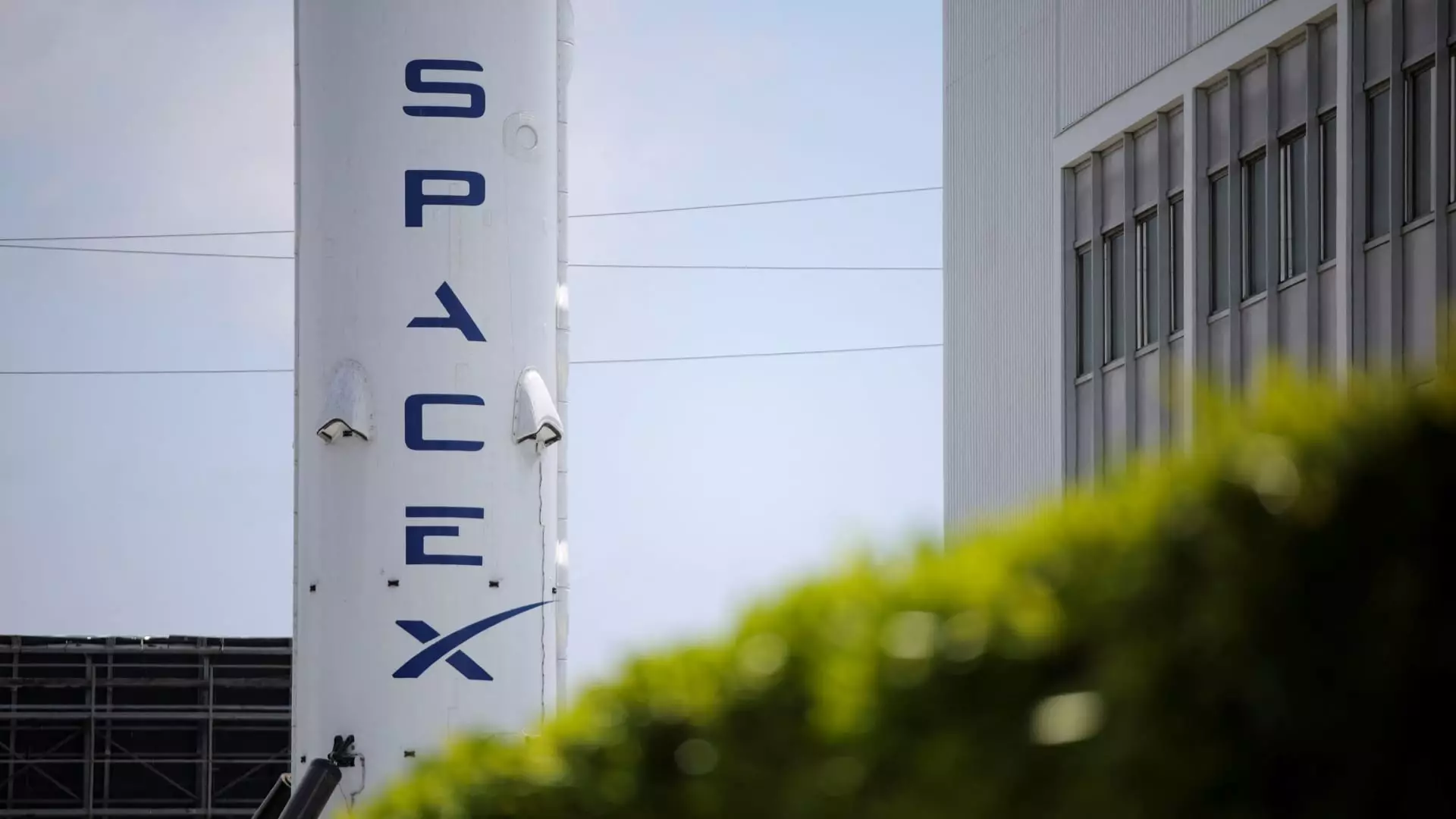In an increasingly polarized political environment, the recent confrontation between President Trump and Elon Musk has illuminated a precarious truth: the intertwining of government contracts and personal disputes can have reverberating implications for national security and public interest. The White House’s directive for the Defense Department and NASA to audit SpaceX’s substantial contracts—in the wake of this spiting feud—reveals not just a potential vendetta against a billionaire but also a redefining of the boundaries where politics and business overlap. A striking irony presents itself when we recognize that Musk, who once acted as an advisor in shaping governmental efficiency, now finds himself in the crosshairs of his own previous policies.
Can Legal Boundaries withhold Political Impulses?
The idea of scrutinizing the $22 billion worth of contracts held by SpaceX seems less about logistical review and more akin to political maneuvering—a form of retaliation painting both parties in a concerning shade. As a matter of principle, the government should function based on objective assessments, especially when national security is at stake. However, the current administration’s apparent eagerness to weaponize such contract reviews for political gains suggests otherwise. One can’t help but wonder if the administrative decision-makers are acting in the best interests of the public or merely yielding to ego and personal grievances.
Legal experts like Scott Amey raise valid apprehensions regarding the implications of these actions. The potential for political motives to enter the realm of contract evaluation raises questions: can an administration legitimately cancel contracts over personal issues? While it appears legally tenuous, the mere contemplation of such actions illustrates a slippery slope where petulance may dictate crucial defense decisions. This is not merely abstract policy; it involves providing safety and securing technological advancements for a nation.
The Dangers of Squandering Strategic Partnerships
SpaceX has effectively become an indomitable player in the U.S. defense ecosystem. From launching vital satellites to contributing to the infrastructure of missile defense systems, its relationship with the government is symbiotic—Musk’s innovations bolster national security while simultaneously electrifying America’s aerospace capabilities. The precariousness of this relationship reveals deeper vulnerabilities; should political relationships sour, the fallout could impede significant advancements in defense technology that could protect the nation.
The backlash from government scrutiny could also jeopardize public perception. From a liberal standpoint, the notion that contract integrity could be jeopardized by a petty “power struggle” is disheartening and counterproductive. Instead of fostering innovation, such politicization breeds an environment of mistrust where hardworking personnel and companies may question the stability of their funding. As the government threatens to pull the threads on contracts like the $5 billion NASA Dragon program—currently the only American spacecraft designed to transport astronauts to the International Space Station—the ramifications could be dire, affecting not just SpaceX’s coffers but the broader U.S. space initiatives.
A Dangerous Game of High Stakes Diplomacy
The strategic peace that exists between governmental entities and forward-thinking corporations is fragile; a single overarching campaign fueled by personal animosity can rupture this delicate tapestry, leading to devastating repercussions. This dance of political influence could set a dangerous precedent where public service is twisted into a tool for revenge rather than a platform for progress. The idea that these personal rivalries could morph into policy actions redefines not just the role of the presidency, but the very nature of governance itself.
Ultimately, the core of this issue transcends Musk’s bombastic style or Trump’s bluster; it’s a matter of public trust, national security, and the integrity of our institutions. The administration’s foray into the questionable realm of targeting private contracts suggests a disregard for the higher ideals of governance, which should ideally prize transparency, accountability, and above all, the interests of the public over personal vendettas. In this political landscape, the stakes couldn’t be higher, as the future of technology and national security wrestle under the weight of the ambitions—and egos—of two powerful men.

